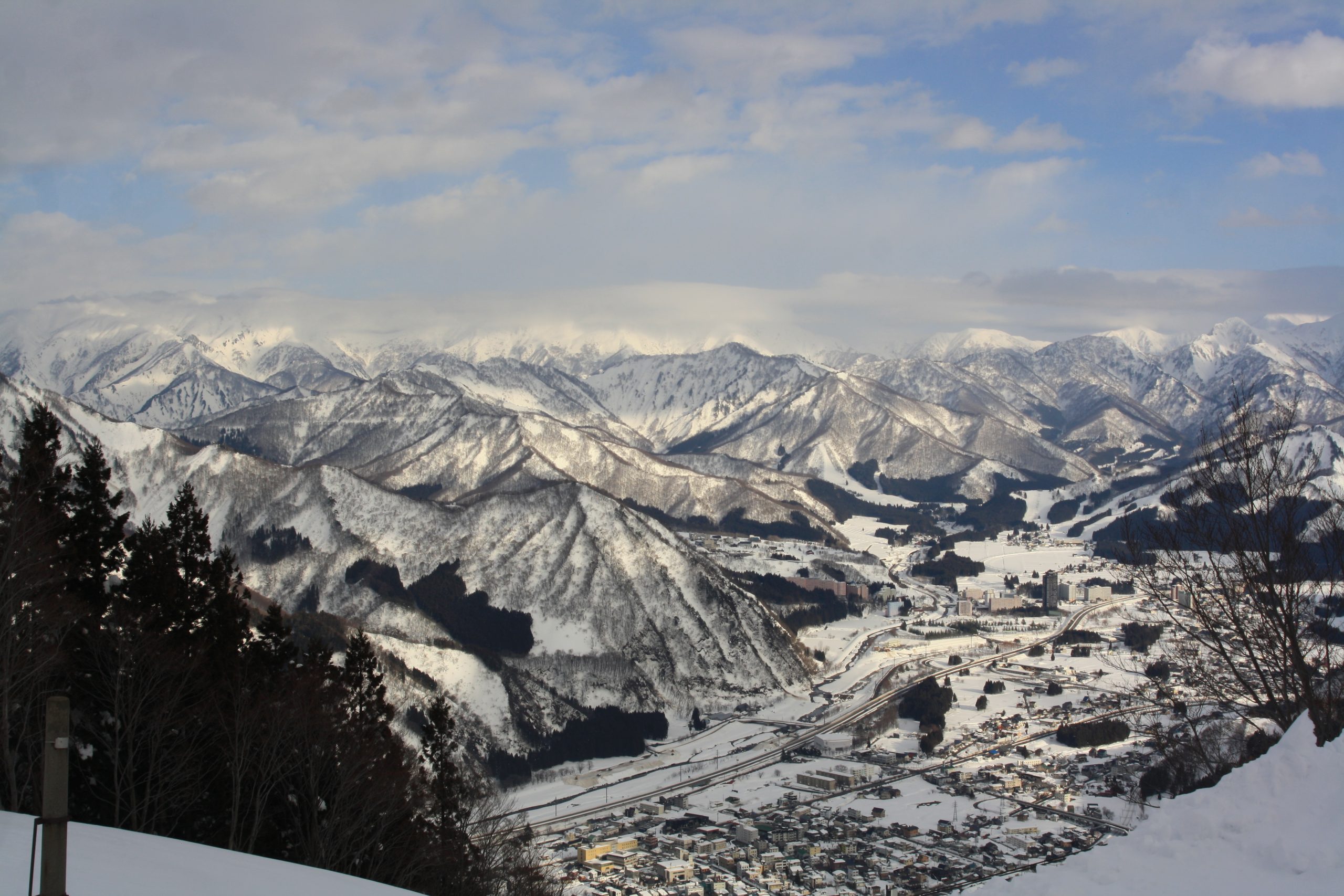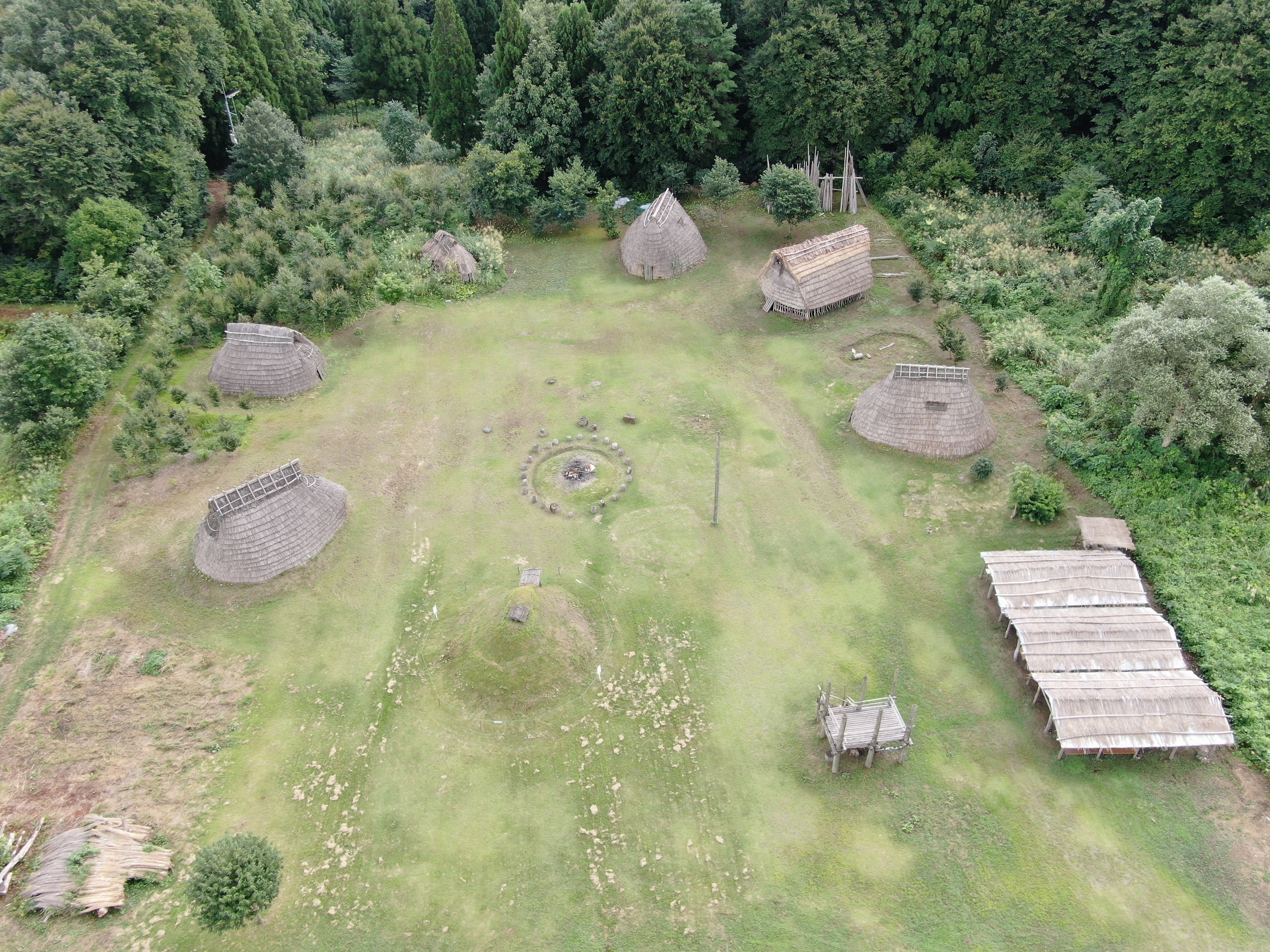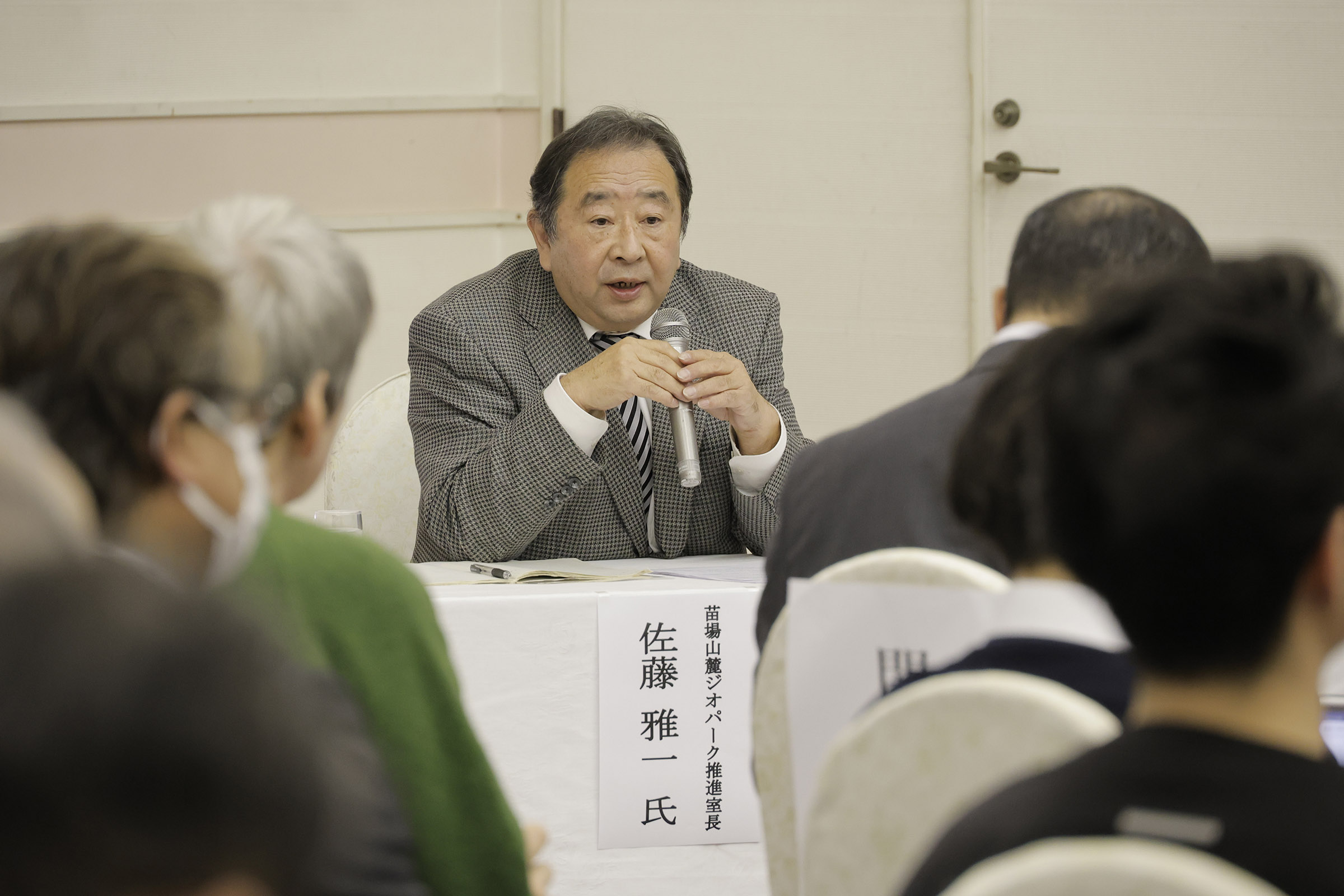Japan is both a land of Pop Culture and a land of medieval cultural landscapes such as Kyoto and Kanazawa. It is a country with a high level of information technology, but also a country with a traditional rural way of life. In a word, “Japanese culture” is extremely diverse. However, underneath it all, there is one hidden trend that can be found. If you are interested in Japanese culture, it is worth knowing about the underlying Jomon culture.
The Mysterious Jomon
The Jomon were a people who disappeared some 3,000 years ago. They did not leave any written records, so they were a mysterious people. However, thanks to the development of archaeology, we now know a lot more about them.
They are said to be the first people in the world to make earthenware. It is called Jomon Pottery because of its cord pattern. Some Jomon pottery has an extremely decorative design. Their shapes are comparable to those of contemporary art and cutting-edge pop design. In particular, the flame-shaped earthenware is unique to YUKIGUNI, and it is a mystery why our ancestors in YUKIGUNI created such intricate shapes.
Jomon pottery is said to be one of the oldest pottery in the world. The most famous example is the Kaengata earthenware, which was on display at the British Museum. There are many different types of Jomon earthenware, but the Kaengata earthenware has only been found in the area of present-day Niigata Prefecture, suggesting that Niigata Prefecture has been a cultural centre for the past 5,000 years.
Kaengata and Jomon – The Original Artists of Japan
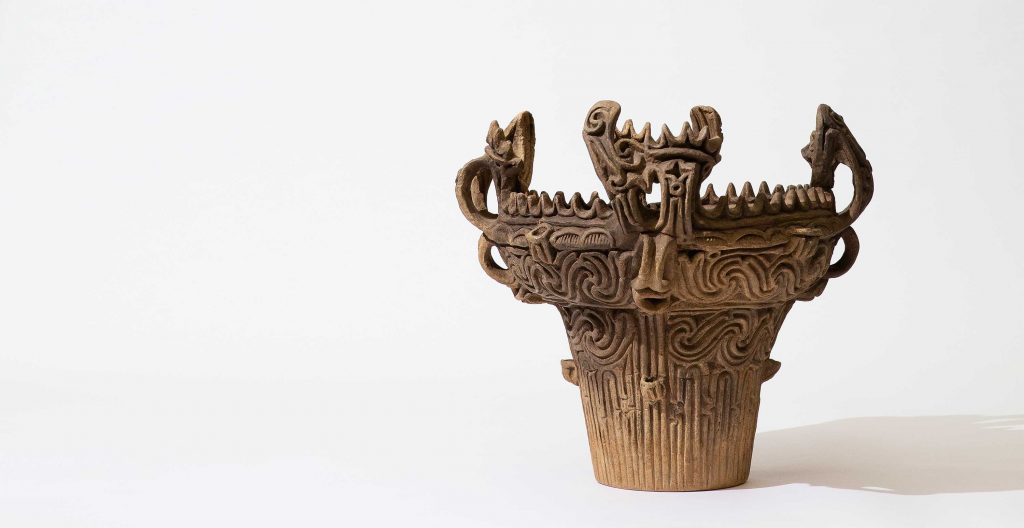
Some scholars believe that in a snowy country, where snow covers the ground for half the year, people had more time in the winter to think carefully about the design of their pottery. Spending time in the snow may have been a very creative time.
Modern People Might Learn How To Face Nature From The Jomon People
With the development of archaeology, we are gradually learning more about what the Jomon people ate and how they lived from the soot on the inside of Jomon pottery. It is surprising that they would have cooked in pots with such complex shapes in the first place.
The Jomon cultural meme still alive today
The Jomon lifestyle combined seasonal gathering of wild plants and berries with moderate farming. They lived in harmony with the forest ecosystem for many years. For 10,000 years! That’s how long they managed to maintain their forest resources and live in harmony.
In the history of the world, many civilizations have been born, flourished, and disappeared. Even the Yellow River civilization, which lasted the longest of the world’s four major civilizations, declined after about 3,300 years.
Jomon, A Culture That Lasted For 10,000 Years
On the other hand, the Jomon period lasted for more than 10,000 years while coexisting with the natural environment. This is something that has never been seen before in the history of the world, and is noteworthy as a sustainable society.
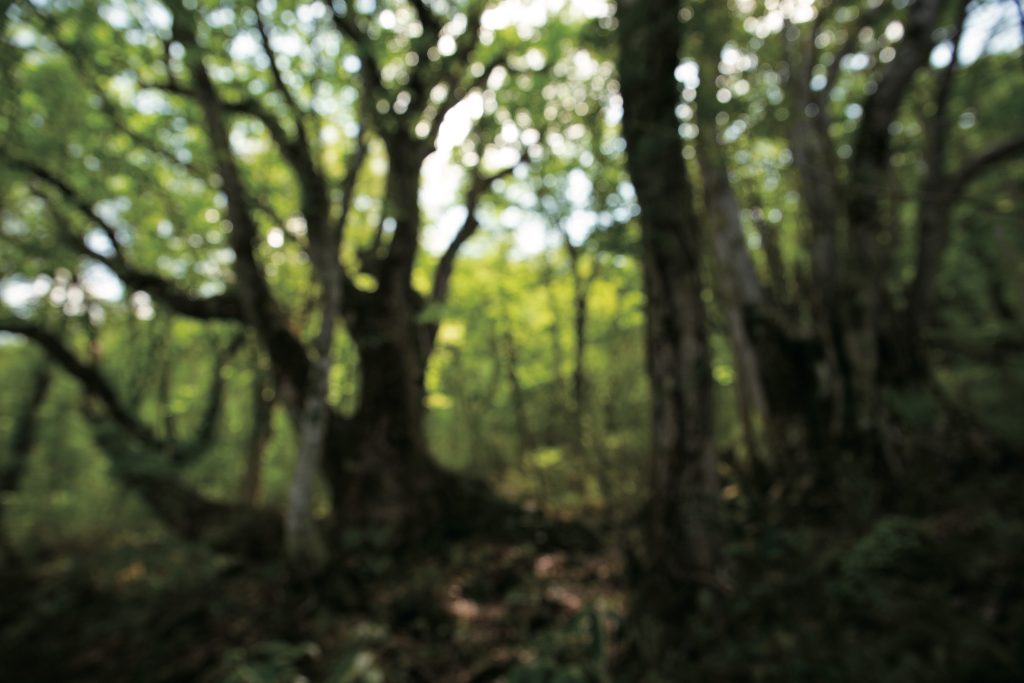
Have all traces of their 10,000 years of mystery been lost? Are there no traces left of the cultural meme of these people who lived in harmony in the forest, listening to the voice of nature with all their senses?
It is inconceivable that the cultural meme of these people, who lived for 10,000 years in the same island nation of Japan, have not survived. I mentioned at the beginning of this article that the Jomon did not leave any written records, but they did have a language. Experts believe that their language is preserved in the onomatopoeia characteristic of the Japanese language. Their sense to nature is inherited in the Japanese language, which is rich in onomatopoeic words such as Shin-shin, Sara-sara and Jabu-jabu.
Such expressions include, for example, the sound a river makes when it flows – “sara-sara”(smoothly) in Japanese, the sound of water overflowing (“jabu-jabu” (abundantly)), or a cicada cries (“min-min”). The reason why there are many expressions related to nature may be the influence of the Jomon period during which humans lived in harmony with nature for over 10,000 years.
YUKIGUNI Wordpedia
And one more thing. Besides the language, their cultural meme have been preserved in the Japanese food culture. The custom of foraging for wild vegetables in spring and mushrooms in autumn.
If you go to a village in the depths of Japan, gathering food in spring and autumn is not an uncommon lifestyle. YUKIGUNI is a special area, especially in the spring, when there is still snow on the ground, which allows for a long period of time to enjoy the gathering of wild plants. If you are interested in finding out more about the food culture of YUKIGUNI, which has a Jomon heritage, please read the following articles
Japanese food culture is not just about sushi, kaiseki and ramen. Japan has a diverse range of climates and climates, and a unique food culture to match. Here we introduce you to the unique culinary culture of YUKIGUNI, a country where snowfall is rare in the world.
Sushi And Ramen? That’s Not All Japanese Food Culture Has To Offer!
YUKIGUNI was a natural birthplace for “preserved food”. You’ll find this knowledge everywhere you look in the way of life and culture of YUKIGUNI.
Exploring the roots of gastronomy in the snow country.
Jomon and sustainability
In the face of climate change, the world is desperately searching for a sustainable lifestyle. Now is the time to look at the Jomon, who lived in harmony with the forest for 10,000 years. To consider the lifestyle of the Jomon people is to consider the future.

